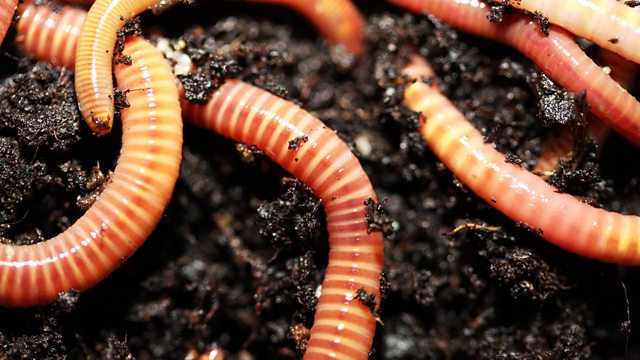Earthworm
Aristotle described them as the 'intestines of the earth'. They captivated Charles Darwin. Brett Westwood explores our relationship with the earthworm. From 2017.
Whilst we might take them for granted, Aristotle described them as the intestines of the earth and Charles Darwin recognised their importance when he wrote "It may be doubted whether there are many other animals which have played so important a part in the history of the world, as have these lowly organised creatures". As Brett Westwood discovers, these 'ecosystem engineers' play a vital role in aerating our soils, aiding drainage, clearing up pollutants and, if you're a Gippsland giant and measure up to 3m in length, making themselves heard from below ground! They have also wormed their way into our literature, charmed our culture and burrowed into our language.
First broadcast in a longer form: 25th July 2017
Original Producer: Sarah Blunt
Archive Producer for Βι¶ΉΤΌΕΔ Audio in Bristol : Andrew Dawes
Last on
Professor Janet Browne

Ever since then she has specialised in reassessing Charles Darwin’s work, first as associate editor of the early volumes of The Correspondence of Charles Darwin, and more recently as author of a biographical study that integrated Darwin’s science with his life and times. She is based at Harvard.
Dr Kevin Butt

He heads up the Μύ
Paul Evans

He is Senior Lecturer in Creative Writing at Manchester Metropolitan University.
Mike Forster

Dr Beverley van Praagh

Emma Sherlock

Emma's favourite worm: The 'fried eggs' earthworm

Chris Watson

His sound recording career began in 1981 when he joined Tyne Tees Television. Since then he has developed a particular and passionate interest in recording the wildlife sounds of animals, habitats and atmospheres from around the world. As a freelance recordist for film, TV & radio,Μύ
Μύspecialises in natural history and documentary location sound together with track assembly and sound design in post-production.
Broadcasts
- Tue 25 Jul 2017 11:00Βι¶ΉΤΌΕΔ Radio 4
- Mon 31 Jul 2017 21:00Βι¶ΉΤΌΕΔ Radio 4
- Sun 2 Oct 2022 06:35Βι¶ΉΤΌΕΔ Radio 4


